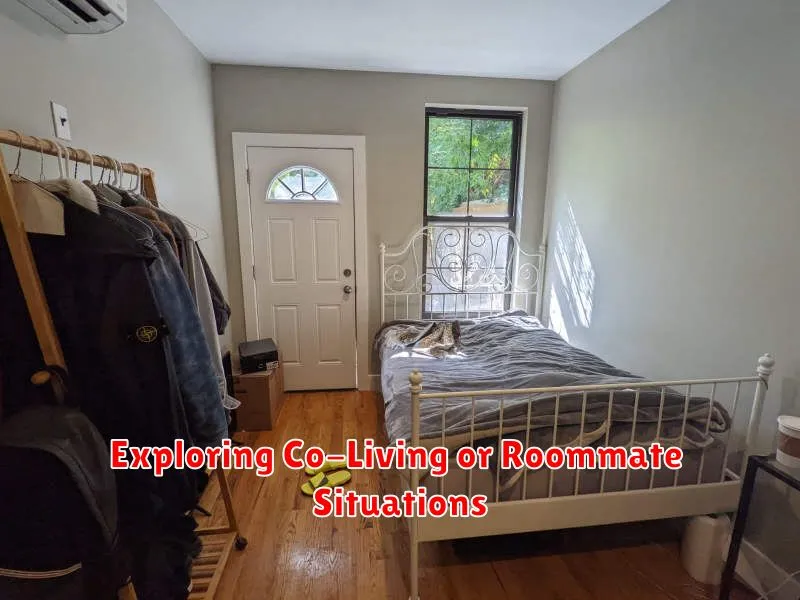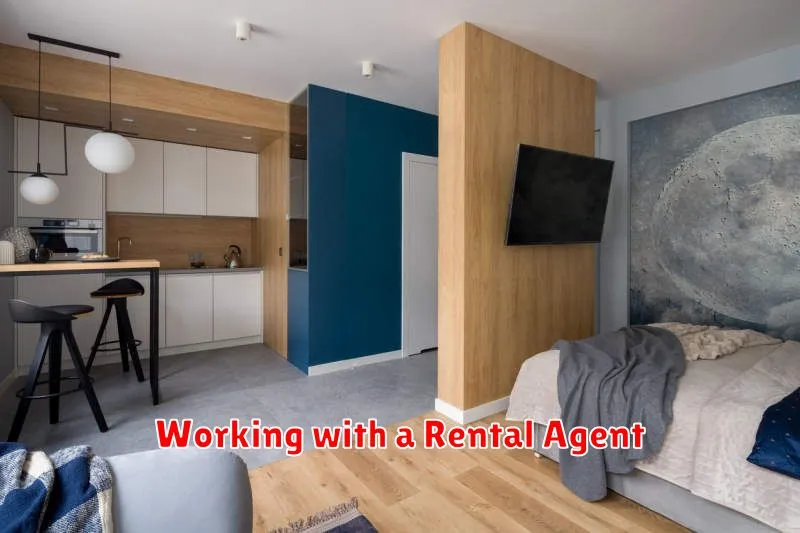Are you ready to move out on your own but worried about finding an apartment without a guarantor? Many landlords require a guarantor to ensure they’ll receive rent payments, but it’s not always easy to find someone willing to take on that responsibility. Don’t let this roadblock stop you! This article will guide you through the process of renting an apartment without a guarantor, providing you with tips and strategies to increase your chances of success. From building a strong rental history to exploring alternative options, we’ll equip you with the knowledge to confidently secure your dream apartment.
Understanding Guarantor Requirements
A guarantor, also known as a surety, is an individual who agrees to be financially responsible for your rent payments if you fail to do so. Landlords often require guarantors for tenants who lack a strong credit history, have a limited income, or are new to the country. Understanding the specific requirements for a guarantor can be crucial when trying to rent an apartment without one.
The requirements for a guarantor can vary depending on the landlord and the property. Some landlords might simply require the guarantor to be a US citizen or permanent resident with a good credit score, while others might also demand a minimum income level or a specific relationship to the tenant.
It’s important to note that guarantor requirements are often stricter for apartments located in major cities or upscale neighborhoods. If you’re looking to rent in a competitive market, having a guarantor might significantly improve your chances of securing a lease.
Building a Strong Rental Application without a Guarantor
Securing an apartment without a guarantor can be challenging, but it’s not impossible. Landlords often require guarantors to mitigate the risk of potential financial losses, such as unpaid rent. However, there are ways to build a strong rental application that can increase your chances of approval.
One of the most crucial factors is a solid credit history. Landlords will review your credit report to assess your financial responsibility. A strong credit score demonstrates that you are reliable with managing your finances. It’s essential to maintain good credit habits, such as paying bills on time and keeping your credit utilization low.
Another significant aspect is demonstrating stable income. Landlords want assurance that you can afford the rent. Provide documentation like pay stubs, bank statements, or employment verification to prove your income stability.
A positive rental history is also vital. If you have rented before, provide previous landlords’ contact information. Positive references from previous landlords showcase your responsible tenancy and ability to adhere to lease agreements.
While a guarantor offers a safety net, landlords may be willing to consider alternative options. Offering a higher security deposit can be a good strategy. Additionally, proposing a longer lease term might demonstrate your commitment to staying in the apartment for an extended period.
Ultimately, presenting a comprehensive and well-organized rental application showcasing your financial stability, good credit history, and responsible rental history can significantly improve your chances of securing an apartment without a guarantor.
Highlighting Your Financial Stability
When you’re renting an apartment without a guarantor, landlords often have concerns about your financial stability. To alleviate these concerns, you need to showcase your ability to consistently meet your financial obligations.
Here are some key strategies:
- Provide Proof of Income: This can be in the form of pay stubs, bank statements, or tax returns. If you’re self-employed, provide documentation that verifies your income.
- Demonstrate a Strong Credit History: A good credit score shows you’re responsible with finances. If your credit score is low, consider building it up before applying for an apartment.
- Offer a Larger Security Deposit: This can offset the landlord’s perceived risk, demonstrating your commitment to the lease agreement.
- Show Stability in Employment and Residency: Landlords appreciate a history of consistent employment and residency, indicating a track record of responsible behavior.
- Offer References: Reach out to previous landlords, employers, or other individuals who can vouch for your financial reliability.
By highlighting your financial stability, you’ll increase your chances of securing an apartment without a guarantor and demonstrating your reliability as a tenant.
Providing Alternative Forms of Security
If you don’t have a guarantor, landlords might ask for alternative forms of security. These can vary, but some common options include:
Increased Security Deposit: Landlords may request a larger security deposit, typically one or two months’ rent, to cover potential damages or unpaid rent.
Letter of Credit: A letter of credit is a financial guarantee issued by a bank, promising to pay the landlord a certain amount in case of default. This option offers more security for the landlord, but you’ll need a good credit score and sufficient funds to secure it.
Prepaid Rent: Some landlords might ask you to pay several months’ rent upfront. This reduces the risk for the landlord but can be a significant financial burden for tenants.
Insurance: Renter’s insurance can cover damages to the property and provide liability protection, offering reassurance to the landlord.
Negotiation: Be prepared to negotiate with the landlord about acceptable security options. Discuss your financial situation and any alternative arrangements you can offer.
Negotiating with Landlords
Negotiating with landlords can be tricky, especially without a guarantor. Landlords may be hesitant to rent to you without someone to vouch for your financial stability. However, you can increase your chances by being prepared and demonstrating your reliability.
Here are some tips for negotiating with landlords without a guarantor:
- Show Strong Financial History: Landlords want to see you can afford the rent. Provide bank statements, pay stubs, and a letter of employment showing your income.
- Offer a Longer Lease: A longer lease agreement provides landlords with more financial security, making them more open to renting to you.
- Be Willing to Pay a Higher Deposit: A higher deposit can offset the risk for the landlord. Consider offering a deposit that is 1.5 or 2 times the monthly rent.
- Offer to Pay Rent in Advance: If you can, offering to pay a few months of rent upfront can demonstrate your commitment to the tenancy.
- Be Honest and Open: Be upfront about your situation and why you need to rent without a guarantor. Landlords may be more understanding if you are transparent.
Remember, be respectful and professional in your communication with the landlord. By being prepared and proactive, you can increase your chances of securing an apartment even without a guarantor.
Finding No-Guarantor Apartment Options
Finding an apartment without a guarantor can be challenging, but it’s not impossible. Here are some tips to help you find an apartment that doesn’t require a guarantor:
Look for landlords who are willing to consider alternative options. Some landlords may be willing to accept a higher security deposit, a co-signer, or a letter of recommendation from a previous landlord.
Target specific neighborhoods. Some neighborhoods may have a higher concentration of landlords who are willing to rent to tenants without a guarantor. Look for areas with a high concentration of students or young professionals.
Use online resources. Several online resources can help you find apartments without a guarantor. Many websites list apartments that don’t require a guarantor.
Network with friends and family. Ask your friends, family, and colleagues if they know of any landlords who are willing to rent to tenants without a guarantor.
Be prepared to provide additional documentation. If you’re looking for an apartment without a guarantor, be prepared to provide additional documentation, such as proof of income, credit history, and bank statements.
Be patient and persistent. It may take some time to find an apartment without a guarantor. Don’t get discouraged if you don’t find an apartment right away. Keep searching and eventually you’ll find the perfect place for you.
Exploring Co-Living or Roommate Situations

If you’re struggling to secure an apartment due to a lack of a guarantor, consider exploring co-living or roommate situations. These options often require less stringent requirements, such as a guarantor, and can offer a more affordable housing solution.
Co-living spaces are professionally managed shared living spaces with amenities like common areas, kitchens, and laundry facilities. They often require shorter lease terms and prioritize community building.
Finding a roommate can be a great way to split rent and utility costs. Online platforms like Craigslist, Facebook Marketplace, and Roomster are popular for connecting with potential roommates.
When exploring these options, remember to prioritize your personal preferences and safety. Thoroughly research the co-living space or potential roommates to ensure a good fit.
Considering Smaller Apartments or Different Locations

If you’re struggling to find a landlord willing to rent to you without a guarantor, consider looking for a smaller apartment or a different location. Landlords may be more willing to rent to someone without a guarantor if the apartment is smaller and less expensive, or if it’s located in a less desirable area. This is because they may perceive less risk in renting to someone who can afford a smaller, more affordable unit.
You could also try focusing your search on areas that are known to be more renter-friendly. Some cities have a high percentage of renters and therefore, more landlords who are willing to rent without a guarantor. You can find information about renter-friendly cities online or by asking local real estate agents for advice.
Working with a Rental Agent

Working with a rental agent can be an excellent strategy for finding an apartment without a guarantor. Agents have access to a wide range of listings, often including those not publicly advertised. They can also negotiate on your behalf, potentially securing you a better deal or helping you navigate challenging landlord requirements.
When selecting an agent, it’s crucial to choose a reputable and experienced one. Research their track record, read online reviews, and inquire about their fee structure. A good agent will understand your needs, help you refine your search criteria, and provide valuable insights into the local rental market.
Remember to communicate your situation openly with the agent. Explain why you don’t have a guarantor and inquire about their experience in helping tenants in similar circumstances. They may have strategies for overcoming this challenge, such as offering alternative forms of security deposits or working with landlords who are more flexible in their requirements.
Understanding the Implications of Renting Without a Guarantor
Renting an apartment without a guarantor can be challenging, but it’s not impossible. While it may seem like a quick solution, it’s crucial to understand the potential implications before making a decision.
Landlords typically require a guarantor to mitigate their risk. A guarantor is someone who agrees to be financially responsible for your rent payments if you fail to do so. Without a guarantor, the landlord bears a greater financial burden should you default on your rent. This can make it harder to find an apartment, as landlords may be hesitant to rent to someone without a financial safety net.
Another implication is that landlords may require higher deposits or a longer lease term without a guarantor. They may also request a credit check and a proof of income, to assess your financial stability.
Ultimately, renting without a guarantor might lead to a more demanding rental process and stricter requirements. Therefore, it’s essential to be prepared for these potential hurdles and ensure you can meet the landlord’s demands.

